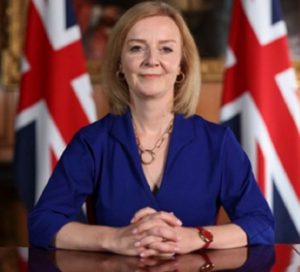Liz Truss, in her first speech as UK Prime Minister, identified three priorities for her new Government. She pledged to deliver on “the economy, on energy, and on the NHS”. The first was to be expected, and the second is a necessity in the face of the energy crisis, but to prioritise the NHS, and place it on “firm footing”, over other pressing concerns is an important statement of intent from the Conservatives.
Truss’ next step was to appoint Thérèse Coffey as the UK’s third health secretary in 2 months. Coffey used her speech at the Conservatives’ annual conference to lay out her vision for fixing an ailing NHS: an “ABCD” approach prioritising ambulance waiting times, cutting backlogs, improving care, and delivering better access to doctors and dentists. She promised to place an “emphasis on primary care”. Coffey was also honest about the current backlog, admitting the numbers would “get worse before they get better”.
However, these ambitions fail to acknowledge the key problem facing the UK’s health service—chronic understaffing. There are about 132 000 vacancies in NHS trusts, as well as 165 000 in social care. One in three care workers left their job in 2020–21. A House of Commons Committee report into NHS staffing suggests an extra 475 000 jobs will be needed in health alone by the early 2030s. The strain on remaining staff is causing large numbers to leave, and strikes are looming. The NHS has faced staff shortages for years. Coffey and the rest of Government need to provide a credible plan to rectify this issue. Without it, achieving the Government’s goals for the NHS will be impossible.
In one of her first declarations after becoming Prime Minister, Truss rejected the idea of looking at the economy through the lens of redistribution. Instead, growth will be prioritised, because growing the economy means more money for all. Aside from the curious idea that previous chancellors were not prioritising growing the economy, rejecting redistribution and referring to transfers of wealth via taxation as handouts fails the UK in important ways. There are huge inequalities in the UK, with child poverty rates in the northeast of England rising by almost 50% in just 7 years and life expectancy in low-income regions of the UK diverging alarmingly from high-income regions. These inequalities threaten the long-term health of people in the UK. Against this backdrop, the minister in charge of equalising regional differences, Levelling Up Secretary Greg Clarke, says that further cuts to public spending will “pull Britain out of its fool’s paradise”.
The new Government’s approach to the determinants of health is concerning. There are reports that Coffey will drop plans to publish a strategy for tobacco control. The immediate order of a review into the Government’s obesity strategy, described as “deregulatory in focus”, seems to be setting up a U-turn. Measures such as the ban on multi-buy deals and advertising restrictions for products high in fat, salt, and sugar were meant to come into force in October, 2022. There are also concerns that the Government will abandon 2018’s sugar tax. Obesity underlies a plethora of non-communicable disease and abandoning attempts to tackle it under the guise of rejecting so-called nanny state politics would be actively harming the nation’s health on ideological grounds.
The Government’s first steps on the environment have been to bring back fracking, hamper the use of solar power, and dial down commitment to net zero and Paris targets. The UK’s role in global health has been damaged by a lack of commitment to the Global Fund and a delayed return to foreign aid contributions. Where there should be a humane migration system, there are instead brutal and racist anti-migrant policies that reads like a far-right fever dream.
This winter, the UK faces pressure on many fronts—on health services, on energy prices and supply, on inflation, and now, thanks to chancellor Kwasi Kwarteng’s so-called fiscal event, an uncertain economic outlook. Anyone not supporting Liz Truss or Brexit was decried in the new Prime Minister’s conference speech as a member of the “anti-growth coalition”. The country must hope that Truss abandons ideological thinking and that the position of Prime Minister helps her operate with nuance and detail, incorporating expertise. This should be a time for national unity in the face of a crisis. As for health, Truss must begin by investing in and valuing health workers, without whom her promises will be nothing more than invented fantasies.
EDITORIAL| VOLUME 400, ISSUE 10360, P1281, OCTOBER 15, 2022
https://www.thelancet.com/journals/lancet/article/PIIS0140-6736(22)01982-1/fulltext
Ramin’s Comments:





